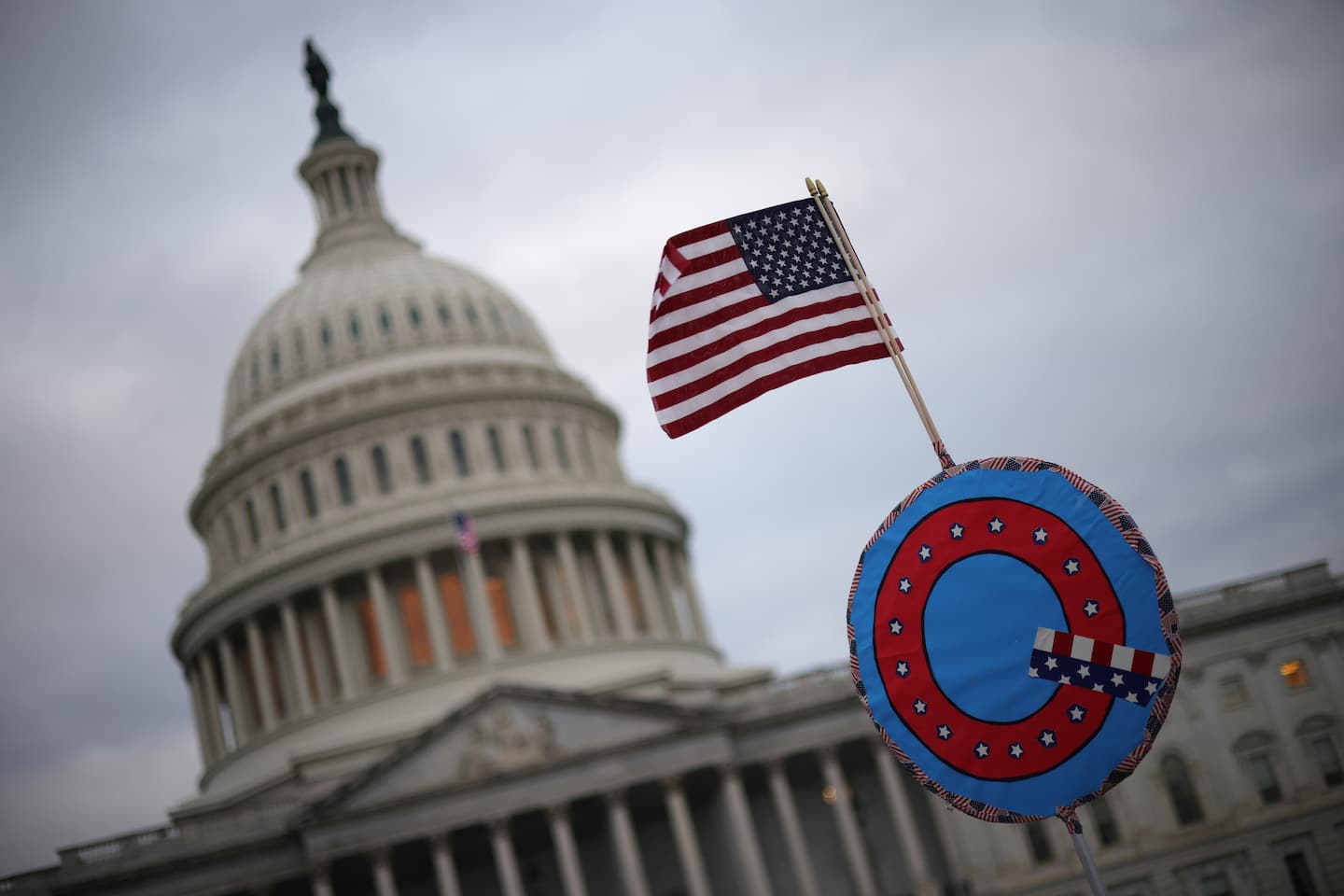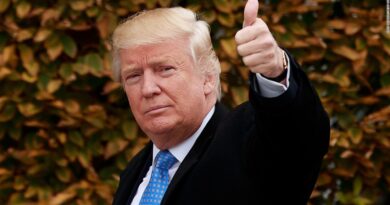The community element of dangerous conspiracy theories

It’s bizarre to even have to talk about those two things in the same sentence because the latter seems so much more obviously outlandish than the former. They contain common elements, though, such as broad misunderstanding of Trump and references to secret, nefarious efforts to undermine the country. And, again, neither has any credible evidence to back it up.
When we couple them together, we also see how differently conspiracy theories can be spread. The QAnon theory, lacking any real utility, is treated as ridiculous across the political spectrum and is relegated to the domain of Facebook groups and the like. The one about fraud, though, is useful, powering hundreds of proposed bills that will probably make it harder for Democrats to cast votes in future elections. So it is treated as serious — or worthy of serious discussion and elevation — by conservatives and the right-wing media.
When we look at the fraud allegations as conspiracy theories, which they are, it becomes less likely that we’d assume adherents are isolated loners looking for community. They constitute a mainstream belief and, according to research from the American Enterprise Institute’s Survey Center on American Life, a belief more commonly held by people who are heavily engaged in community groups than those who don’t have such strong community ties. It’s more commonly found among people who are members of religious congregations than among those who aren’t.
That former divide holds true for the QAnon theory, too: People who are more engaged in community groups are more likely to say that the QAnon theory is mostly or completely accurate.
There are probably overlapping characteristics playing a role here. People who go to church more often tend to be more conservative, for example, making them more likely to accept the idea that the election was tainted by fraud.
But that doesn’t mean that such associations play no role. For example, the research shows that among Republicans — certainly the political group most likely to think the election was tainted by fraud, per other polling — those who said their social circles included a lot of Trump-supporting friends were far more likely to say they accepted the fraud conspiracy theory than were Republicans with a more limited set of Trump-supporting friends.
The religious group most likely to adhere to the tenets of QAnon were White evangelical Protestants. Most Americans unaffiliated with a religious congregation rejected that theory.
The researchers don’t claim that joining community groups makes you more likely to adhere to conspiracy theories, just that those who are isolated from the community aren’t more likely to do so, either.
“We find that community attachment does not predict conspiratorial beliefs,” the AEI’s Daniel Cox writes. “Americans who report no connections to community groups are not any more likely to believe in QAnon … or that there was rampant voter fraud in the 2020 election than those with more robust community ties are.”
It takes a village to attempt an insurrection, if you will.
*** This article has been archived for your research. The original version from The Washington Post can be found here ***


